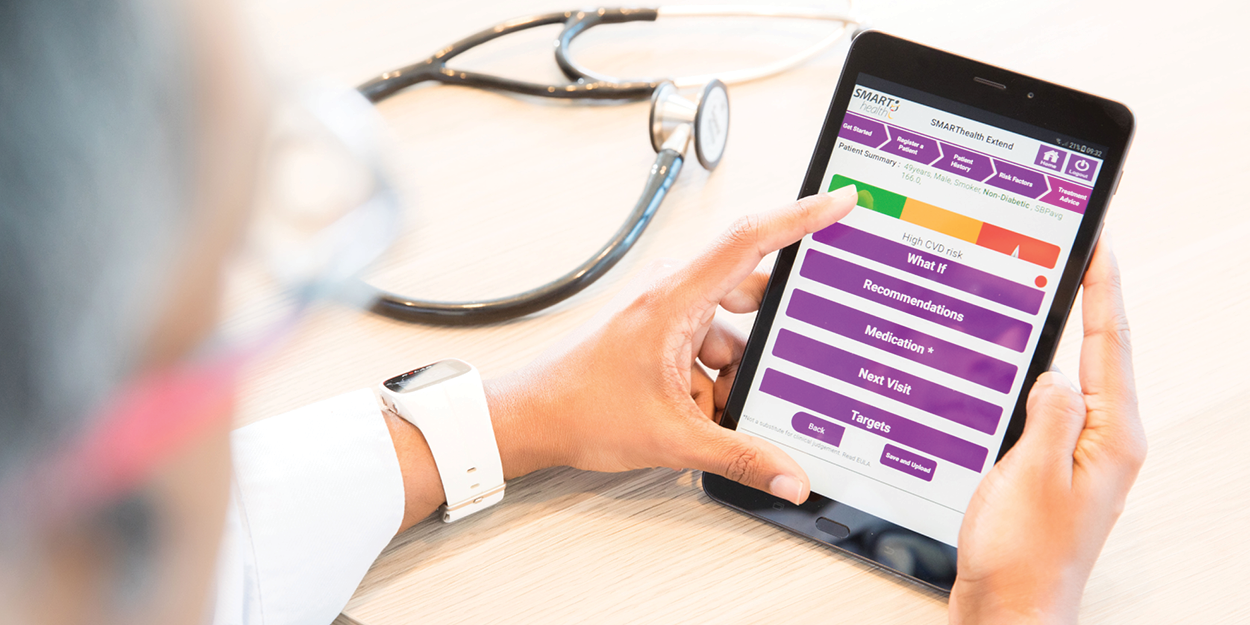
20 years of challenging the status quo
From its first days, The George Institute has always been thinking big and challenging the status quo, as Professor Anushka Patel explains.
It’s very rare for career researchers to overturn prevailing opinion so early in their career and then see their research help millions of people, but that’s exactly what's happened to cardiologist Anushka Patel and her colleagues after she arrived at the Institute in 2001.
“At that time, there was little awareness that so-called diseases of affluence had become so prevalent in poorer countries,” she says. “We were excited to work in such a new area.”
Anushka joined the Institute to lead the ADVANCE diabetes clinical trial. This ambitious study included over 11,000 people in 20 countries across Asia, Australia, Europe and North America, and to this day it is still the most comprehensive study of diabetes across the globe.
ADVANCE was hugely successful and identified a new treatment approach for Type 2 diabetes that has helped transform the way diabetes is managed around the world. The study also helped establish the Institute as a global research heavyweight, tackling a global health problem for which very little research funding had been invested.
Today, as the Institute's Vice-Principal Director and Chief Scientist, Anushka remains just as determined not to shy away from less orthodox – and less popular – areas of research. She is as focused now as she was in 2001 on finding new ways to help some of the world’s most vulnerable people – even when this means challenging accepted wisdom head-on.
“We have lots of evidence about effective ways to prevent and manage non-communicable diseases, but it’s now clear that globally there’s been a massive failure to get those treatments to those who need it most,” she says. “So, for the past 10 years we’ve grown our research around how to have greater impact, particularly to help the most disadvantaged people globally.”
One current example of convention being turned on its head is the Institute’s SMARThealth program. SMARThealth is a mobile technology-supported primary care intervention that has already been proven to positively impact on the health of thousands of people in Australia, India, Thailand, Myanmar and Indonesia.
Covering a range of conditions such as cardiovascular disease, diabetes, chronic kidney disease, mental health conditions, and high-risk pregnancies, SMARThealth is demonstrating that in countries with too few doctors, community health workers can fulfill many of their roles supported by mobile technology.
“We are showing that with the right support and technological infrastructure, community health workers – usually women with as little as eight or nine years of formal schooling – can provide high-quality advice and referrals to doctors for people who need them.”
This approach significantly expands access to quality, patient-centred care, reduces gender income gaps and promotes strong community role models.
Another area of progress has been in the novel use of existing medications. A study published by the Institute in 2014 tested a blood-pressure treatment that is ingenious in its simplicity. Researchers found that when three existing drugs (each at half-dose) are combined in one pill, a polypill, they are much more effective than existing approaches to hypertension care. Another polypill initiative, the SPACE project involved 3,140 patients with established cardiovascular disease (CVD) or at high risk of CVD from Europe, India and Australasia. The results showed a 43 per cent increase in patient adherence to medication at 12 months with polypills containing two blood pressure lowering drugs, a statin and aspirin, compared to usual care.
“While we’ve stuck to our strengths, we are also not afraid to let people develop and expand new ideas,” says Anushka. “It’s not only exciting, it’s essential for our survival if we want to improve the health of millions of people worldwide.”
Celebrating 20 years: Anushka’s top moments
- ADVANCE study: “This is still to date the biggest trial ever for people with Type 2 diabetes. It has had a major impact on clinical guidelines worldwide.”
- Driving success in India: “While we were still very small, I was acting Executive Director of the India office. It was a great experience to get to help build the foundations of the Institute there.”
- Expanding access: “Our research has provided really strong evidence that you don't need doctors to provide much basic preventative care. Shifting away from the traditional doctor-centric models to more affordable and more accessible models that can provide as good, if not better care, than doctors has been one of the major outputs of our research.

